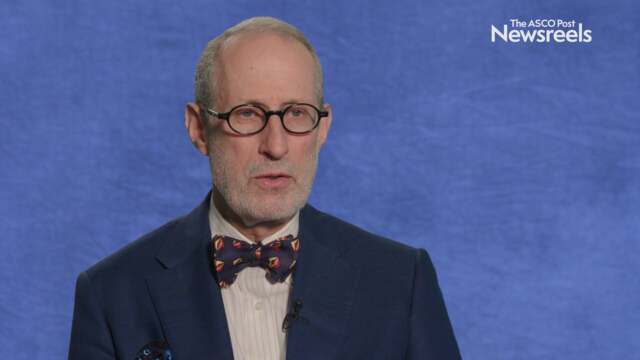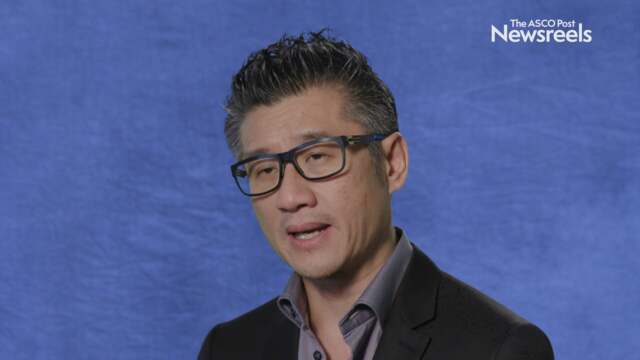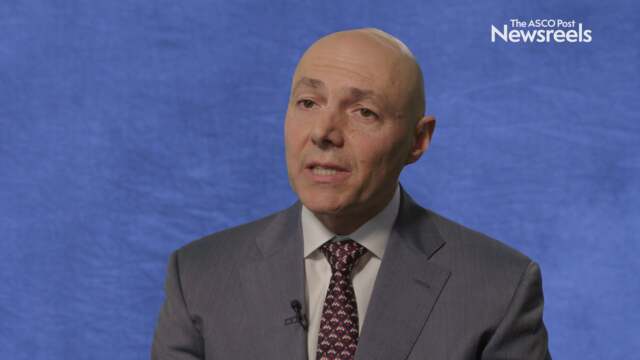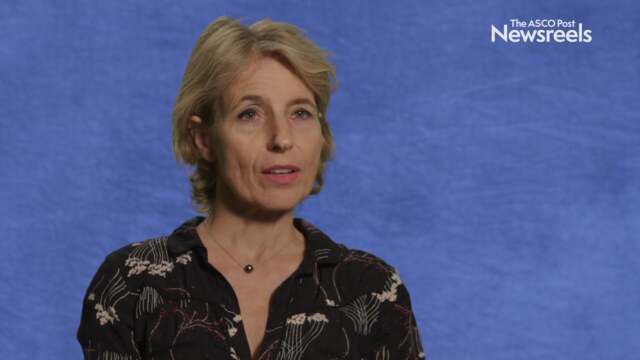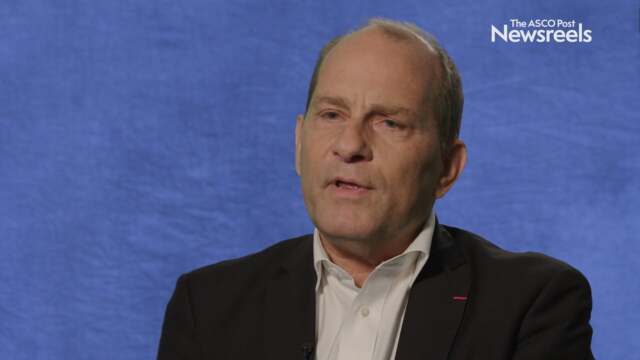Eileen M. O’Reilly, MD, on Hepatobiliary Cancer: Multimodality Approaches
ESMO 2018 Congress
Eileen M. O’Reilly, MD, of Memorial Sloan Kettering Cancer Center, discusses the latest information on locoregional and systemic treatments of hepatocellular carcinoma as well as targeted therapy for biliary cancer.
Jeffrey S. Weber, MD, PhD, of the NYU Langone Perlmutter Cancer Center, discusses how long people with melanoma should be treated with PD-1 blockade and the data on remission rates.
Tony Mok, MD, of the Chinese University of Hong Kong, discusses two important studies in non–small cell lung cancer: FLAURA, which looked at the first-line activity of osimertinib and the mechanisms of resistance; and ALESIA, which examined crizotinib dosing.
Ezra E.W. Cohen, MD, of the University of California, San Diego, discusses the effectiveness of anti–PD-1 therapy in patients with recurrent head and neck cancer and the studies that might help predict who will benefit, how to combine agents, and ways to reduce long-term toxicity.
Caroline Robert, MD, PhD, of Gustave Roussy Cancer Centre, discusses two high-impact studies in stage III melanoma treatment: an update of the COMBI-AD trial examining dabrafenib and trametinib; and neoadjuvant ipilimumab and nivolumab therapy.
Alexander M.M. Eggermont, MD, PhD, of Gustave Roussy, discusses findings from recent adjuvant trials in high-risk melanoma, and what the NCCN Guidelines recommend in light of such data as results on dabrafenib plus trametinib vs anti–PD-1 treatments (nivolumab or pembrolizumab) and the new standard for wild-type disease.
